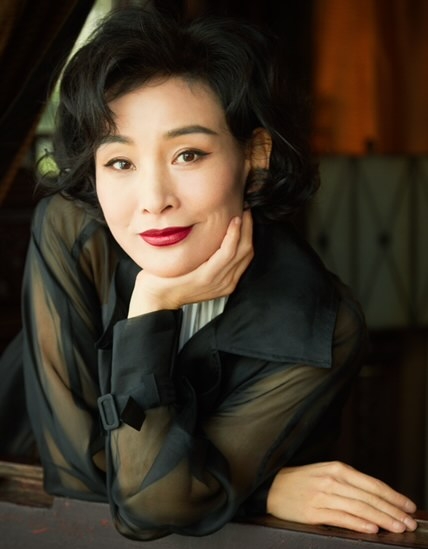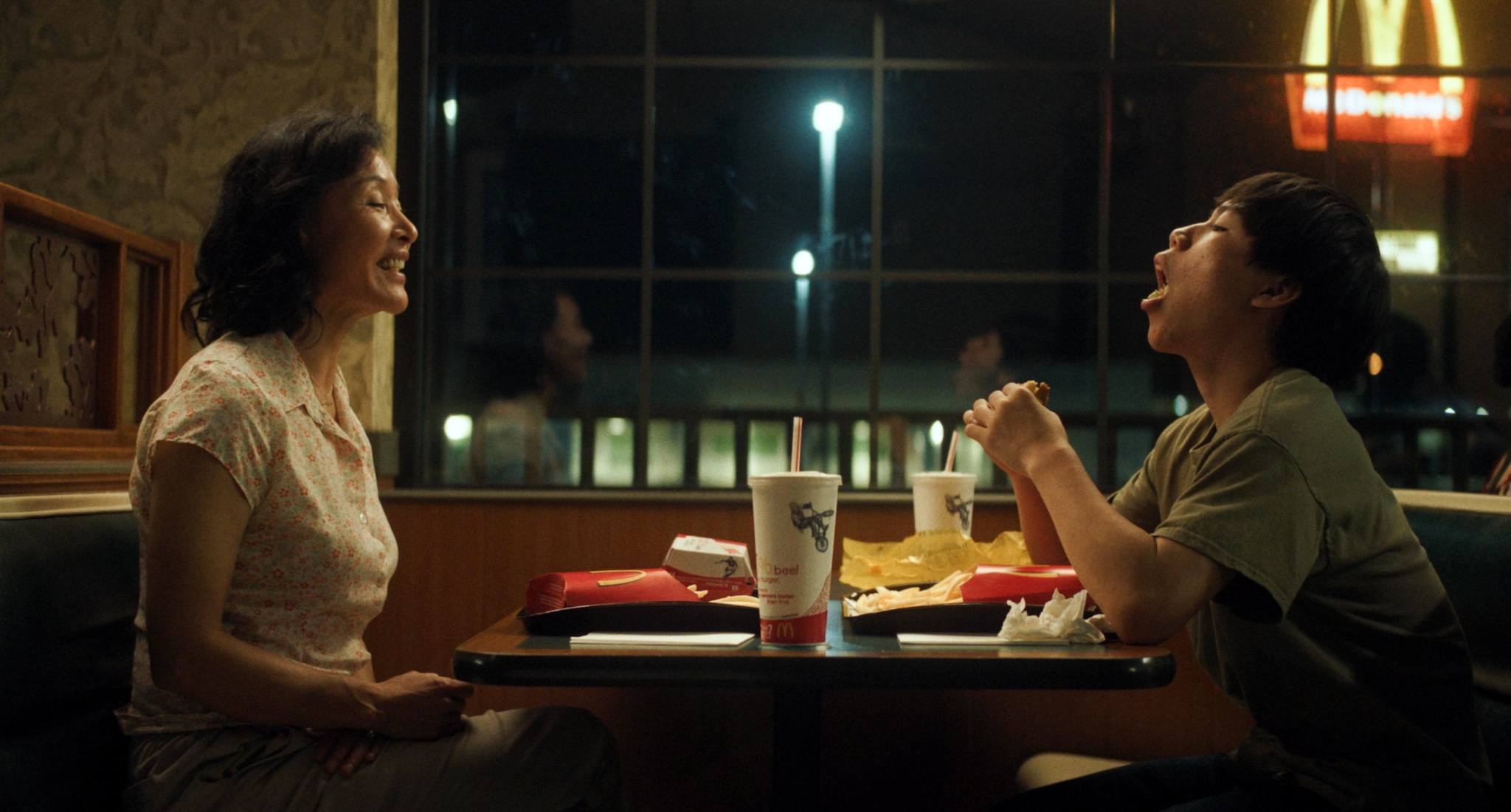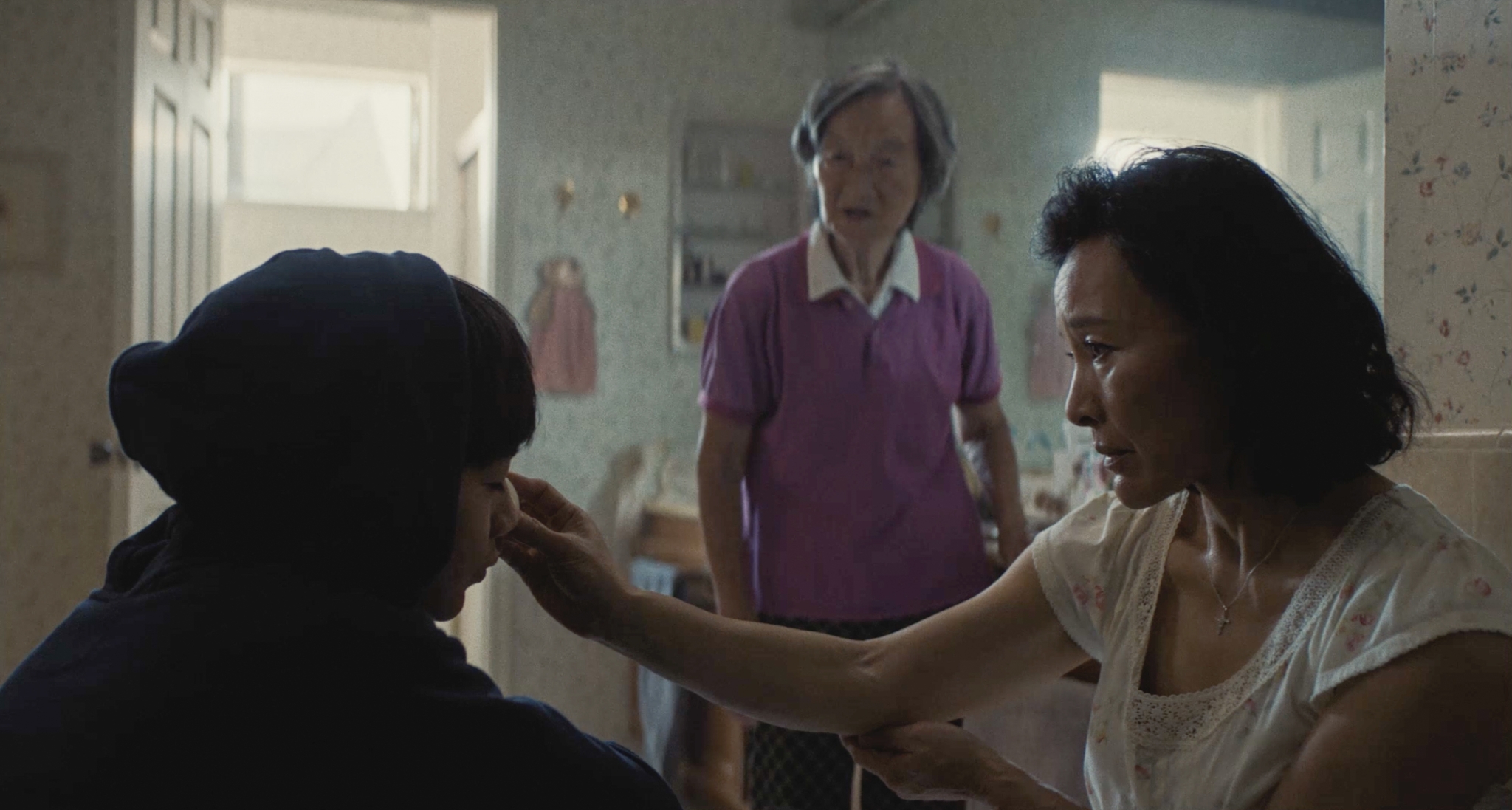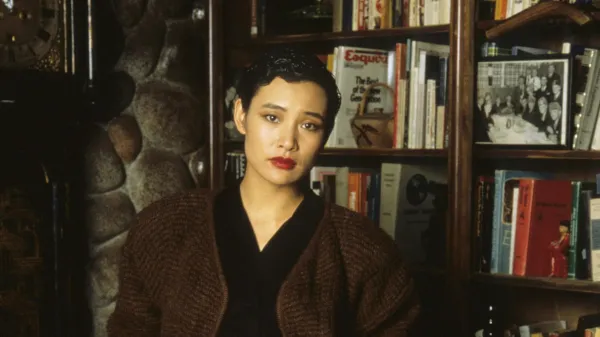
Actress Joan Chen began her career in China in the late 1970s. After over 40 years in television and cinema, she is receiving her most rapturous reviews of her career.
Actress Joan Chen began her career in China in the late 1970s. After over 40 years in television and cinema, she is receiving her most rapturous reviews of her career.
“It’s mind boggling,” says Joan Chen. “I mean, I knew the script was solid, and I had a good feeling about it when we were filming. I was wholeheartedly pouring my own life into the character, so that was all good, but I just never dreamed of there being such a strong reaction to the film. And you know, critically reviewed well and received well by audiences, and now award buzz? It is all just mind boggling.”
Speaking from her home in San Francisco, the Chinese American actress laughs in amazement. Best known for her starring role in Bernardo Bertolucci’s Academy Award-winning The Last Emperor and David Lynch and Mark Frost’s television series Twin Peaks, the source of Chen’s amazement is her new film, Dìdi, for which she has been getting the best reviews of her storied career. For the film, the feature debut for writer-director Sean Wang, Chen plays Chungsing, a frustrated artist with an absent husband, teenage children and a hectoring mother-in-law. Set in Fremont, California in the summer of 2008, the year in which MySpace and AIM Messenger dominated social media, Wang’s film finds sympathy in all its subjects, but it is Chen’s fathomless patience and almost luminous compassion that grounds the film and provides its star, a pre-teen Izaac Chung, with a place to clumsily express himself.
“It’s refreshing, actually, to see an authentic Asian mother like that, and not a stereotypical tiger mom or strict patriarch,” Chen says. “Chungsing is just an immigrant mother wanting the best for her American children, but not knowing exactly how to get that. It is also refreshing because she’s artistic and funny. A lot of Asian mothers that I knew were more like her than stereotypical Asian moms.” The role is based closely on the mother of the film’s writer and director, Sean Wang.

A still from Didi (dir. Sean Wang, 2024)
“I knew her work, Wang told A Rabbit’s Foot, “but what really planted the seed was Alan Yang’s film Tigertail. She has one scene but it’s one of the film’s defining scenes. She’s so sensitive and tender and soft spoken, but she carries such a presence and a weight. It’s exactly what I wanted the mom in Dìdi to be. She’s not someone who makes a scene. She’s got to be captivating in her quietness. That’s what Joan brings to the movie. Her eyes alone are the best production value you could ever get. She says nothing and you feel everything. She’s a tried-and-true movie star.”
“When Sean wrote the script, he didn’t know me, so he didn’t know my personal stories,” says Chen. “But since we shot the film in his mother’s house, she was always around trying to be helpful and taking care of grandma on set, so we got to talk a great deal. I really got an understanding of what we both went through with our children’s adolescence and our experiences are very similar, and I think she did a better job than I did,” she says with a bashful smile. “And for me, I wanted to incorporate her gentler touch. I had her record all my lines because I was curious to find out how she would say a very angry sentence, how she delivered that anger. It was interesting to incorporate her into my performance, but I think the best preparation was actually motherhood itself.”
Chen’s own childhood was spent in Shanghai. At the age of 14, Chen was reportedly “discovered” by one time film star turned producer Jiang Qing, the wife of then-Chinese leader Mao Zedong, while practicing at her school’s rifle range. Chen recalls that though Qing was producing a film nearby, Jinggang Mountain, it was the film’s director Cheng Yin, who approached her and asked about acting in his film. When Zedong died during the film’s production and Qing was arrested and imprisoned during the power struggle to replace him, the film fell apart, and Chen returned to school. Within a year she had secured a position in the Shanghai Film Studio and was given roles in a series of propaganda films, most notably the patriotic melodrama Little Flower (1980), for which she won China’s Hundred Flowers Award for Best Actress.
Disliking the attention that came with fame as a teenager, she left China for California and enrolled in a filmmaking course at California State University. While working in hospitality jobs she gradually began getting cast in guest roles in television series such as Miami Vice, Knight Rider and MacGyver. Following the success of her role as the tragic Empress Wanrong in The Last Emperor, she was cast as industrialist and possible murderer Josie Packard in Twin Peaks. The role, originally written for Isabella Rossellini, gave Chen a greater profile and a part with depth and range that she would struggle to find over the next decade of her career. After 18 months in one of the most watched and influential television series of its era, she asked to be written out to make the Australian film Turtle Beach, which she accurately describes as “a disaster”.

A still from Didi (dir. Sean Wang, 2024)
“I have made countless stupid mistakes in life and wanting to be written out of Twin Peaks was among the stupidest,” she wrote on her blog, Hungry Empress. “With the ignorance of my youth, and the influence of the PC factions in the Asian community, I naively rebelled against being an exotic flower. I believed that I should want to be something more meaningful.”
To that end, Chen has pushed constantly for better roles and more interesting projects for Asian American actors, writers and directors. Her directorial debut, the harrowing Xiu Xiu: The Sent Down Girl (1998), about a teenage girl’s efforts to return to her hometown after being sent to Tibet as part of Mao Zedong’s Cultural Revolution, won her strong reviews and a newfound respect. Her follow up, the romantic drama Autumn in New York was less well-received. When Wang asked her to appear in Dìdi, it was partly her experience behind the camera that made her able to judge how capable and focused the director was.
“My path is a wild one,” Chen says. “A lot of Chinese immigrants, either from Taiwan or from mainland China, came to America as students. Sean’s mother came as a student. I came as a student. But to prepare for Chungsing, I more reflected upon the time when my children were in their adolescent years. All the confusion that I had, the cultural chasm that I felt between me and my children, fraught with misunderstanding and angst. The most important thing I identified was how important being an artist is to us both to Sean’s mom and to me.”
Throughout her career, a recurring quality of Chen’s characters is poignancy and longing. A repressed sense of nobility and tragedy. Once the result of poor scripts and directors who cast her for beauty rather than her considerable dramatic skills, in Dìdi, the source of those character traits comes from Wang’s script. With her absent husband a looming but unmentioned figure, Chungsing is the sole caretaker in her household. She struggles to understand the social pressures shaping her children and to manage her mother-in-law’s often comically catastrophising advice. Watercolour painting is a source of expression, but one almost regarded with shame by her family.
“She is completely isolated from the society,” says Chen. “She had no jobs and therefore she has not assimilated as well as I have, but I relate to that longing. With Chungsing, I just have to remember she is in this constant state of longing, even if she is just doing the housework or trying to communicate with her children. That gives the character poignancy.”
In the case of her own children, Chen has two daughters, Audrey and Angela, with her partner, cardiologist Peter Hui. Audrey elected to take a job on Dìdi as a production assistant, giving Chen what she describes as the happiest summer of her life.

Joan Chen as Josie Packard in Twin Peaks (dir. David Lynch).
“You know, I never imagined my children being interested in my work,” she says, a smile breaking across her face. “I remember when my older daughter was nine, there was an anniversary screening of The Last Emperor, so I took her to see the film. When we came out, she looked at me,” Chen’s mouth curls into a pout. “She said, ‘You were wearing so much makeup’. That was it! And I was like, ‘OK. They are just not… I’m just mother, you know, I’m just mother’. After Dìdi came out, my daughters were the first ones that sent me screenshots and articles about the film. They were the ones that told me there’s Oscar buzz, that I was having a kind of renaissance. I said, ‘what’!? I was so surprised that they cared about what I was doing,” she says, laughing. “I don’t think they have seen Twin Peaks,” Chen says. “Maybe they have seen an episode or two, but this was something new.”
Chen readily admits how much the industry has changed over the course of her career. She built herself up as a film star, once in China, again in the United States, despite the years of shallow roles that barely drew on her talents, emerged in 2024 as an actress able to tap into a vast reserve of admiration in the film industry. Success looks very different today, she says. While her parents held grave fears over the welfare of their daughter as she carved her unconventional path, Chen holds none of those same fears for her daughters, should they want to enter the film industry.
“It is not anything I can start or stop,” she says. “I realise that. Wisdom always comes too late. During their younger years, I might have been a bit oppressive, thinking that if they didn’t go to a good school, if they didn’t get good grades, then they will not get into a better school which would mean they wouldn’t get a good job in the future which would mean not meeting the right man to get married to,” she laughs. “All those things my mother-in-law character says in the film. That was how I was making my decisions. So now, this time around, I’m a little wiser. A little late, but a little wiser.”





